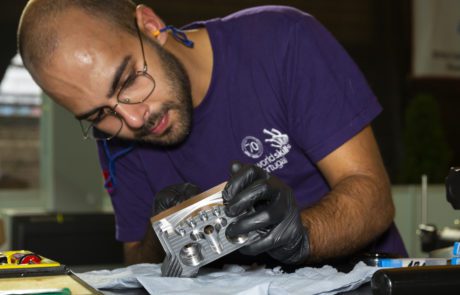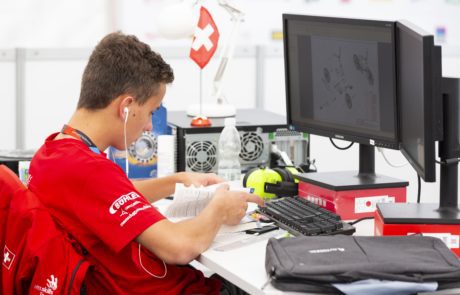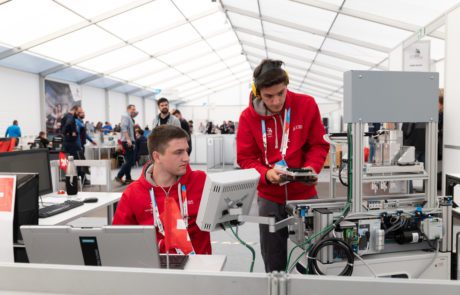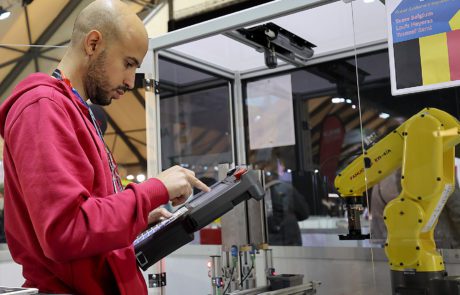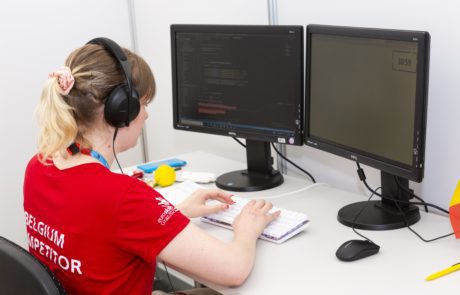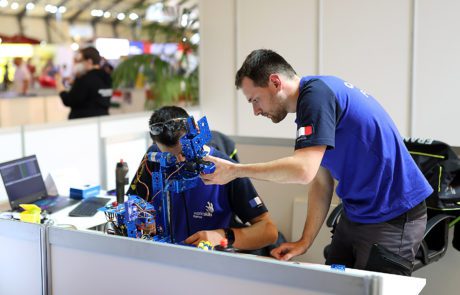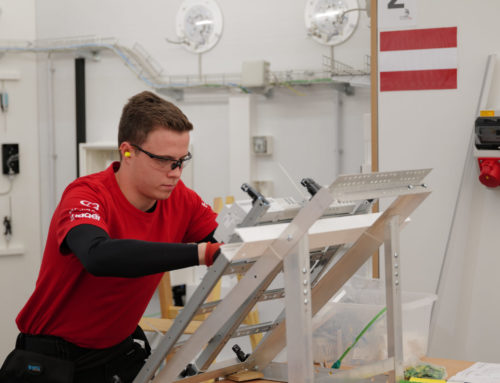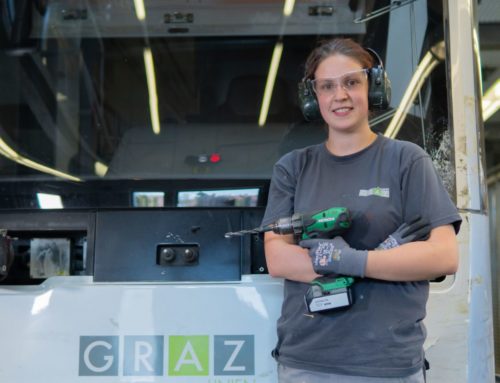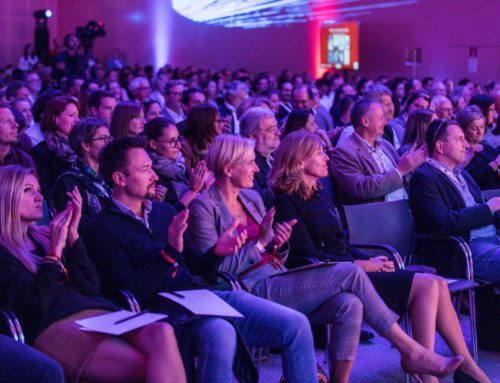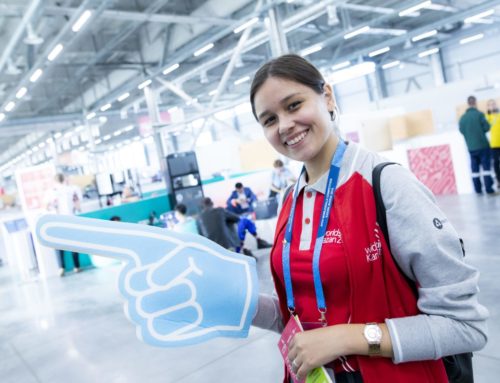EUROSKILLS AS A SKILLS CONTEST FOR DIGITAL TECHNOLOGIES
According to a recent survey by WorldSkills International, skills and trades are becoming increasingly digital – which means that the European Skills Championships are therefore also a contest of digital technologies.
20 September 2021: Apart from technical skills, experience and nerves of steel are also needed ‒ and, to an increasing extent, digital literacy as well. Out of the 56 international skills and trades, about two thirds on average use digital technologies. As far as databases and online communication tools are concerned, the degree of digitalisation in the skills and trades is almost at 100 per cent. This is backed by the results of a recent survey published by the umbrella organisation WorldSkills International. “At the vocational skills championships, our skilled workers of tomorrow will prove that they are highly trained in traditional craftsmanship as well as in handling modern technologies,” emphasises the Supervisory Chairman of EuroSkills 2021, Josef Herk. “In order to keep pace with the trend for digital transformation, more and more new digital skills and trades are becoming established and existing job profiles are being modernised,” says Margarete Schramböck, Federal Minister of Digital and Economic Affairs. For Stefan Praschl, Vice President of World Skills Europe, the survey is proof “that digital tools have also become indispensable in dual education, in order to meet modern-day requirements.”
Traditional craftsmanship is becoming increasingly digital
Even in traditional crafts and trades such as carpentry or construction, the digital transformation is becoming increasingly evident. In carpentry, for example, a completely new additional career profile has been created with the skill of Carpentry Technology (which include specialist modules in planning and production): Work assignments are registered and planned using digital tools, and even the pre-fabrication is done using programmed CNC milling machines. State-of-the-art, high-precision digital tools have long since made the traditional planing machine redundant. The construction sector is also seeing a real digitalisation boom, with digital modelling disciplines such as Building Information Modelling becoming established. Apprentices in construction have recently been equipped with tablets so that they learn to use modern tools. And it was not long ago that the ground was laid for the career of “digital production technician” ‒ a digitally oriented, add-on training module for prospective metal technicians and mechatronics technicians.
New skills and trades
“Digitalisation is transforming the world of work massively. With our campaign to push digitalisation in the dual education scheme, our aim is for young people to complete their training as highly skilled workers. That’s why we are modernising existing job profiles and creating new skills and trades,” explains Federal Minister Schramböck, who is responsible for Digital and Economic Affairs. Only this month, September, two new skills have been created: as well as “Application Development – Coding”, anyone interested can now also do an apprenticeship in “Information Technology”.
More photos from the EuroSkills 2021 Competition can be found on the official Flickr-Account.
Photos Gallery: 1 (c) EuroSkills2021/Oberländer; 2 (c) EuroSkills2021/Winter; 3 (c) EuroSkills2021/Hobiger; 4 (c) EuroSkills2021/Oberländer; 5 (c) EuroSkills2021/Winter; 6 (c) EuroSkills2021/Oberländer.
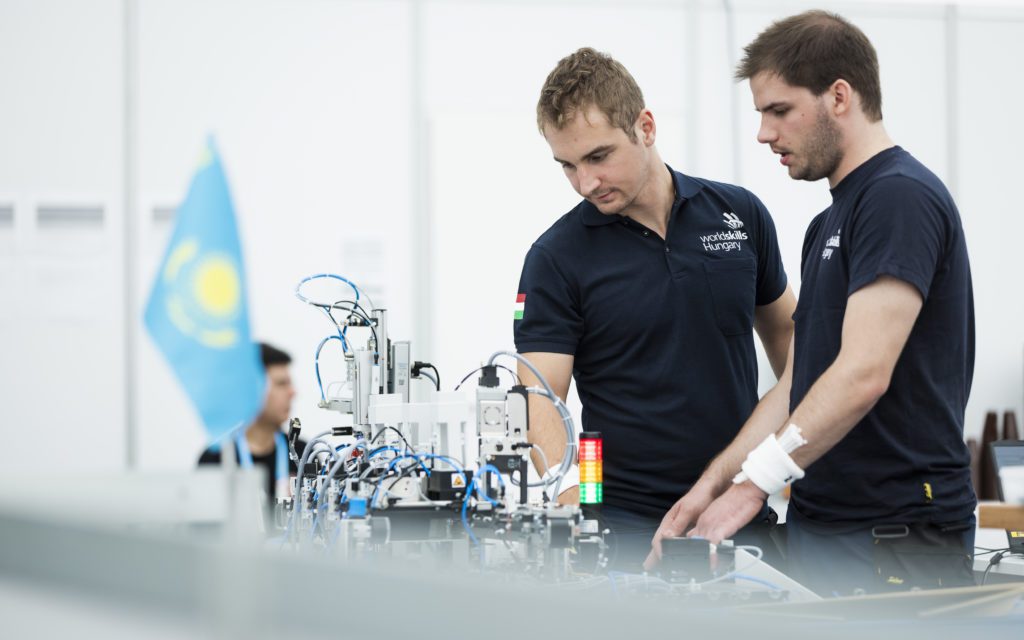
The professional world is becoming more and more digital: new training fields are emerging and traditional professions are experiencing modernisation. Photo (c) EuroSkills2021/Kanizaj.
